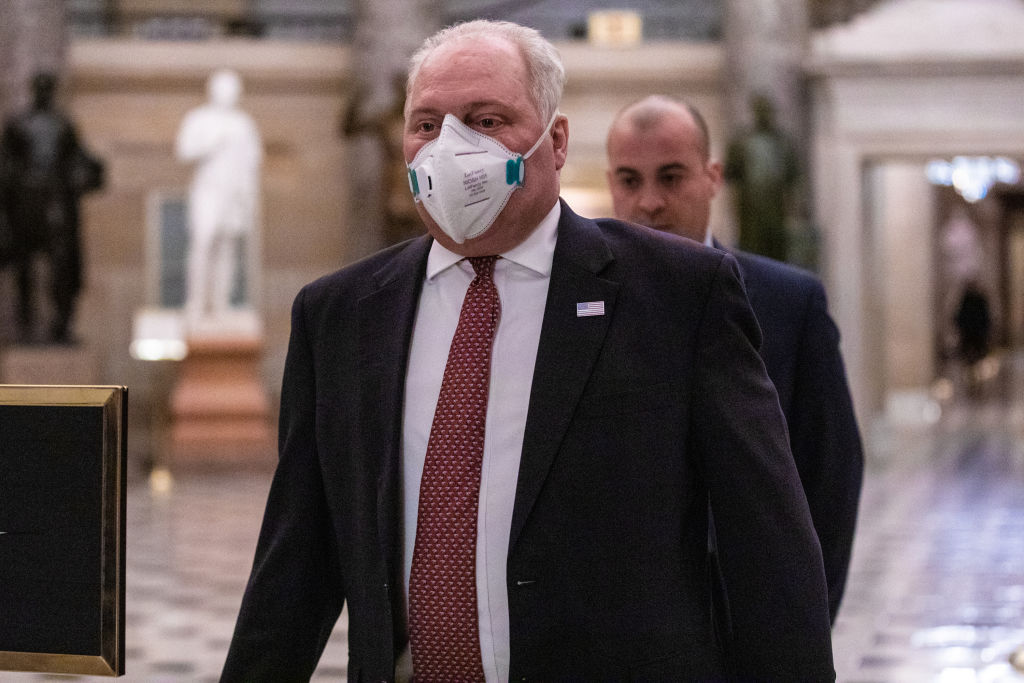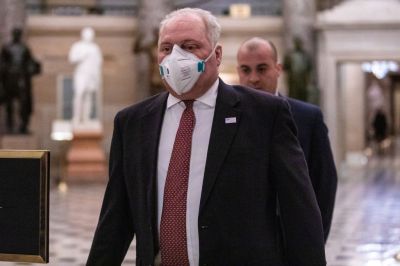A long-dormant medical controversy was revived last week following an announcement from House Majority Leader Steve Scalise. On January 5, his office released a statement indicating that he was undergoing a stem cell transplant as part of his previously announced treatment for multiple myeloma. Hearkening back to the stem cell controversies of the early 2000s, a number of posts emerged online—including a viral Reddit thread and tweet with 54,000 likes and almost 10,000 retweets—accusing the congressman of hypocrisy for receiving a treatment that he allegedly fought against.
The treatment Scalise is receiving has no relation to the embryonic stem cell research often opposed by pro-life Americans, however, and the congressman has never voted to restrict research into the form of treatment he is receiving.
Scalise first announced his diagnosis of multiple myeloma—a rare blood cancer—in late August 2023, telling reporters a month later that his body had responded well to his first round of treatment. “The good news is the cancer has dropped dramatically because of the success of the chemotherapy,” he said in September. The next step for Scalise, as mentioned above, is an autologous stem cell transplant. “[Rep. Scalise] is currently undergoing the transplant process, marking a significant milestone in his battle against cancer,” his office’s January 5 statement read. “Once the procedure is completed, he will be recovering under the supervision of his medical team and will work remotely until returning to Washington next month.” Scalise is receiving treatment in his home state of Louisiana.
Because multiple myeloma attacks a patient’s bone marrow—an essential tissue for the body’s production of blood cells—stem cell transplants are often used to help replace marrow damaged by the cancer with new and healthy marrow. In a typical autologous stem cell treatment, the kind which Scalise is receiving, a patient’s own hematopoietic stem cells are extracted and frozen multiple weeks before treatment. These cells used to be extracted from the bone marrow itself, but today most patients are given a growth factor that allows for stem cells to be taken directly from the blood. The patient is then given intensive chemotherapy, often in a single large dose, before receiving a transfusion of his or her own healthy stem cells. It then takes two to three weeks for the transfused stem cells to restore the functionality of the bone marrow, during which patients can be substantially immunocompromised because of their bodies’ inability to produce the white blood cells necessary for proper immune function.
Unlike embryonic stem cells, which are harvested from early stage human embryos and can take the form of any cell in the body, the hematopoietic stem cells used in the treatment of multiple myeloma are extracted from a patient’s own body or from a voluntary donor and can develop into only a limited range of blood cells. “These are not the type of stem cells that are in an embryo that can become anything,” Dr. Marc Braunstein, a hematology and stem cell transplant expert at NYU Langone Health, told The Dispatch Fact Check. “These are slightly differentiated stem cells that are destined to become blood cells, but not anything else.”
Traditional stem cell therapies are widely accepted and utilized in modern medical practice, unlike the embryonic stem cell research that reached a point of national controversy in the mid-2000s. “We can debate the ethics of using embryonic stem cells,” Braunstein said, “but I think in this case we’re not talking about that at all.” According to Braunstein, even patients who are practicing Jehovah’s Witness—a religious group that typically rejects the use of blood transfusions—are often not opposed to autologous stem cell treatments. “For those individuals who may be leery about the use of embryonic stem cells, I don’t think they would be as concerned with the use of adult hematopoietic stem cells,” Braunstein said.
Furthermore, Scalise has not taken any notable votes against stem cell research—embryonic or non-embryonic. Two notable bills intended to advance embryonic stem cell research, the Stem Cell Research Enhancement Act of 2005 and Stem Cell Research Enhancement Act of 2007, passed both the House and Senate, but both were vetoed by then President George W. Bush. These votes occurred prior to Scalise assuming office in May 2008, however, and very little legislative activity involving embryonic stem cell research has happened since.
In September 2020, Scalise co-signed a letter by Mississippi Sen. Roger Wicker calling for an end to taxpayer funded embryonic stem cell research at the National Institutes of Health, but the letter expressed no opposition to non-embryonic stem cell research or treatment. In fact, Scalise voted in favor of the Stem Cell Therapeutic and Research Reauthorization Act of 2010, Stem Cell Therapeutic and Research Reauthorization Act of 2015, and TRANSPLANT Act of 2021, all of which reauthorized a program intended to support patients in need of stem cell transplants.
Asked by The Dispatch Fact Check whether they believed allegations of hypocrisy were unfair, Scalise’s office declined to comment further, instead saying that the statement on his treatment spoke for itself.
If you have a claim you would like to see us fact check, please send us an email at factcheck@thedispatch.com. If you would like to suggest a correction to this piece or any other Dispatch article, please email corrections@thedispatch.com.







Please note that we at The Dispatch hold ourselves, our work, and our commenters to a higher standard than other places on the internet. We welcome comments that foster genuine debate or discussion—including comments critical of us or our work—but responses that include ad hominem attacks on fellow Dispatch members or are intended to stoke fear and anger may be moderated.
With your membership, you only have the ability to comment on The Morning Dispatch articles. Consider upgrading to join the conversation everywhere.